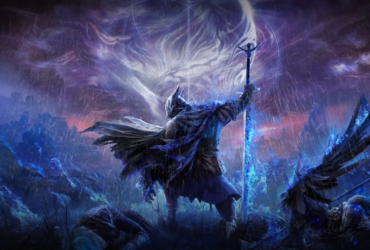A 2021 antitrust dispute brought against Steam has now been expanded into a class action lawsuit.
Initially, the case concerned just two companies – Wolfire Studios and Dark Catt Studios – but a court document shared by our sister site GamesIndustry.biz shows the motion for class certification has been approved. This means the lawsuit now applies to “any developers, publishers, or individuals” who have honoured Steam’s 30 percent cut on any and all purchases on or after 28th January 2017.
Wolfire Games – which filed a new order this time last year – brought an antitrust lawsuit against the megacorp back in 2021. Whilst the original claim was dismissed in November 2021, Wolfire was able to file a further complaint in May 2022. Wolfire was unhappy with the fact Valve takes 30 per cent of all sales on its PC platform, stating Valve is using its market “dominance” to take “an extraordinarily high cut from nearly every sale that passes through its store” which “exploit[s] publishers and consumers” alike.
To see this content please enable targeting cookies. Manage cookie settings
Now the “plaintiffs assert that Valve’s Platform Most Favoured Nations (PMFN) policy has the following anti-competitive impacts, among others: (1) Steam earns a supracompetitive commission, (2) game companies cannot compete between distribution platforms, and (3) rival platforms cannot succeed”.
Alleging that this “harms consumers and game companies alike by increasing consumers’ prices and reducing publishers’ profits”, the plaintiffs assert in court documents that this violates a number of antitrust laws, including Washington’s Consumer Protection Act. Consequently, the plaintiffs seek “class-wide remedies”.
In this most recent paperwork, Valve purported that the key findings of Dr Steven Schwartz were “based on faulty methods and improper assumptions” and requested the court dismiss his testimony that Valve is the largest PC video game distributor in the world, with a market share exceeding that “of all other platforms combined”. The judge dismissed Valve’s request and Schwartz’s testimony will remain.
Wolfire and Dark Catt have been appointed class representatives for the lawsuit.
function appendFacebookPixels() { if (window.facebookPixelsDone) return; !function(f,b,e,v,n,t,s) {if(f.fbq)return;n=f.fbq=function(){n.callMethod? n.callMethod.apply(n,arguments):n.queue.push(arguments)}; if(!f._fbq)f._fbq=n;n.push=n;n.loaded=!0;n.version='2.0'; n.queue=[];t=b.createElement(e);t.async=!0; t.src=v;s=b.getElementsByTagName(e)[0]; s.parentNode.insertBefore(t,s)}(window, document,'script', 'https://connect.facebook.net/en_US/fbevents.js');
fbq('init', '560747571485047');
fbq('track', 'PageView'); window.facebookPixelsDone = true;
window.dispatchEvent(new Event('BrockmanFacebookPixelsEnabled')); }
window.addEventListener('BrockmanTargetingCookiesAllowed', appendFacebookPixels);
Source link












Leave a Reply